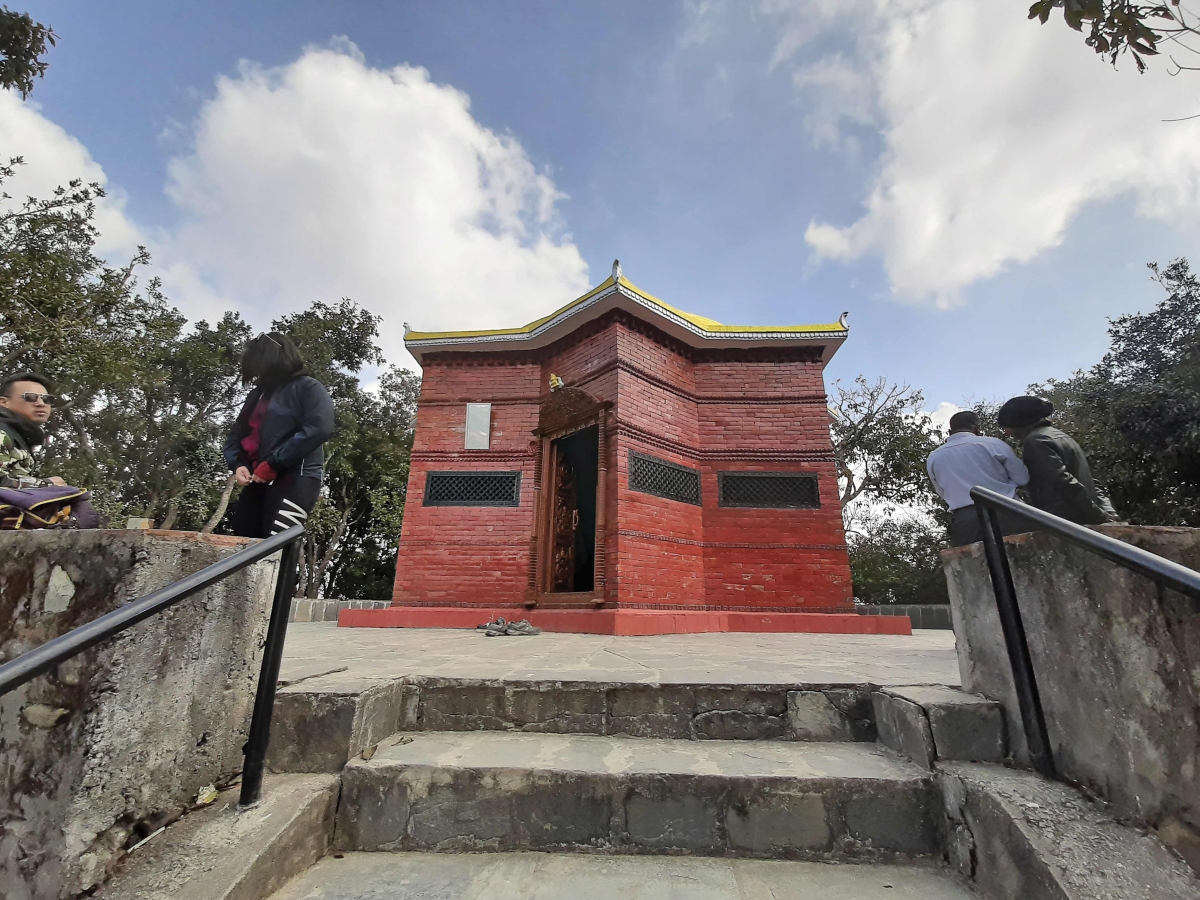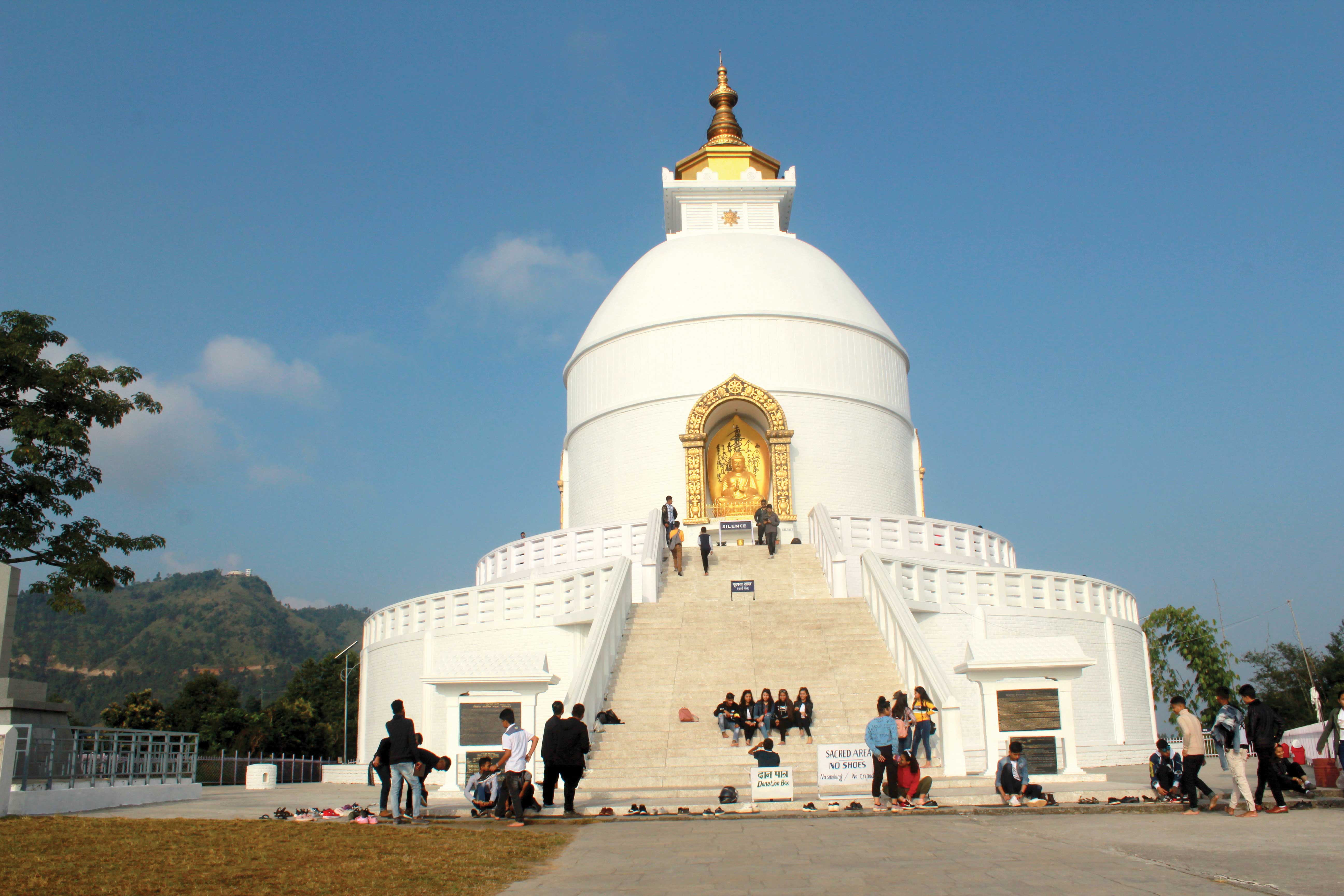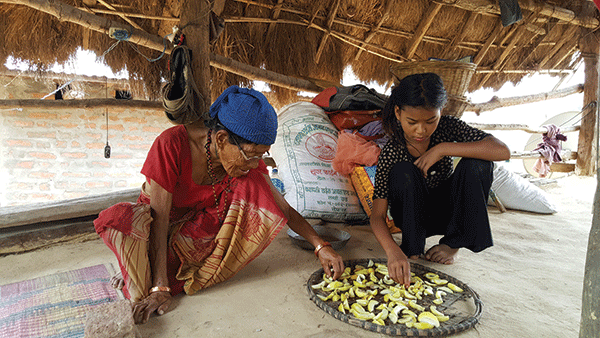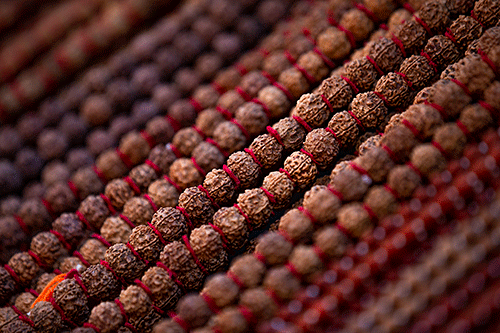A Nepali who currently resides abroad describes his first trip to Pokhara in over a decade.
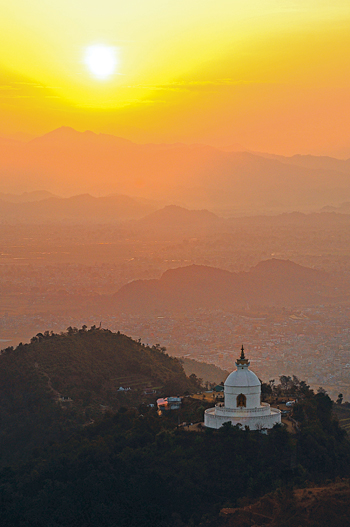 When one has been away for as long as I have from this country and specifically Pokhara, it becomes easy to romanticize the place. One tends to gloss over its imperfections and tilt shift focus only on the good.
When one has been away for as long as I have from this country and specifically Pokhara, it becomes easy to romanticize the place. One tends to gloss over its imperfections and tilt shift focus only on the good.
Before I left for Pokhara, memories of evenings spent as an impressionable teenager in a blues bar, amidst a haze of smoke, nervously gulping warm tongba, while listening to an urbane adult’s aphorisms on life, came flooding back to my mind in a particular sepia tone like the home movies from 70s.
I even remembered fondly, the fairly traumatic instance when, as a five year old, I locked myself in a bathroom of a lake side hotel and was unable to unlock the door or the time I was petrified of riding a boat in Fewa lake lest it would capsize and I would drown.
Like many Nepalis I have travelled to Pokhara often. I came here as a child with my family. I came here as a post pubescent young adult, with my friends, which I might add, is almost like a rite of passage. I will come here again perhaps every time I visit this country now that I live abroad. I can safely say that I am quite familiar with the place.
It would be easy to think that such familiarity breeds boredom. At least that seems to be norm in the US. For instance, while on the road in the United States, landscape changes as you make your way from the east to the west, from the plains to the prairies. The change in scenery however does not bring about a change in the local. No matter where one is, each strip mall that you drive by seems eerily familiar. You are always welcomed to a different part of the country by the same towering pole on which is either a giant American flag or a McDonald’s sign. You notice that malls are architecturally identical and that they are conveniently and conventionally full of the same fast food chains and the same retail outlets. Forget travel, even one’s life arranges itself in the US in the most conventional of tableaux. And paradoxes and idiosyncratic juxtapositions either don’t exist or when they do, they exist only for the most cynical and superficial reasons.
This sense of familiarity also breeds conformity. It is a struggle to escape the Sauronic gaze of the dominant ideology, which through interpellation is constantly telling us to “consume!”. I have to admit I too have become a complicit participant. Hence, apart from fond memories, I also carried with me a certain sense of dread. Had I become a product of such ideology: i.e alien, ignorant, greedy for something that exists only in the ideal, in the mind? Would I, through my own new found (or lost!) ontology and my own phenomenological sense diminish what I was there to experience?
I was asleep for the part of the ride when the bus made its way inside the Pokhara valley. I woke up as the bus rolled through the outskirts of the city of Pokhara. As dust floated in the air outside, the warm mid afternoon, winter sun was beating down on my face through the bus window. Sight of the mountains towards the north was fleeting. The cumulous clouds and tall buildings that stood adjacent to the road obstructed the view. I could however, get a sense that I was auspiciously in the vicinity of the western Himalayas.
The bus screeched to a halt at the dubiously named “Tourist Bus Park”. A slew of men holding signs for one of the innumerablehotels in Pokhara surrounded the idling vehicle. They were peddling everything from hotel rooms to prostitution.
We walked through the melee of touts and headed east towards lakeside, only to encounter another group of cab drivers hawking rides just outside the bus park. “Welcome to Pokhara!” read a sign on a gate that arched above the street that was surprisingly devoid of vehicle traffic.
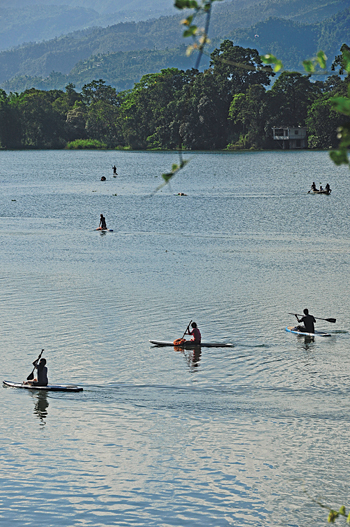 As tempting as it was to get in one of those cabs after the 6 hour bus ride and because of the large trekking ready backpacks on our backs, we decided to take 15 or so minutes walk to lakeside. The tiny bit of hesitation that I’d initially had about the walk completely disappeared as soon as I saw the lake water simmering silver through the unseasonably green leaves. This in my mind at least, was a small victory for the unconventional against comfort, conformity and consumption and perhaps a sign of things to come.
As tempting as it was to get in one of those cabs after the 6 hour bus ride and because of the large trekking ready backpacks on our backs, we decided to take 15 or so minutes walk to lakeside. The tiny bit of hesitation that I’d initially had about the walk completely disappeared as soon as I saw the lake water simmering silver through the unseasonably green leaves. This in my mind at least, was a small victory for the unconventional against comfort, conformity and consumption and perhaps a sign of things to come.
Most domestic travelers have a go-to hotel on lakeside. My travelling companion had one. As it was “off season” for international travelers, we felt that we would be able to walk in and get a room. We were wrong. The receptionist of that hotel had to refer us to the hotel next door. Which was when we met Mala.
Mala was the embodiment of the genuinely bizarre idiosyncrasy that I had hoped I would stumble upon. She was the proprietor, the receptionist and housekeeper- all rolled into one- of the hotel we would sleep in for the night. The hotel was almost hidden behind storefronts which housed an internet cafe and several money exchanges. It was small but functional. If there were any inadequacies, they were overlooked because of Mala’s charms.
She was warm, welcoming, approachable and friendly in a way many receptionists at deluxe or chain hotels can only hope to be, which no amount of corporate training will help emulate. A single, divorcee in her fifties of English background running a hotel in Lakeside Pokhara did not seem out of place.
We could have probably sat down and talked to Mala for the rest of the day but our stay in Pokhara was brief and we had things to do. First on the list was the most touristy of things: boating on Fewa Lake. We skipped over the bit where one is supposed to stop their boat, relax, look up at Machhapuchhre. We had no time to dwell. We had to get across the lake to Raniban and hike through the woods up to the World Peace Stupa. We then had to hike back down and catch our boat before dark.
The stupa from the lake is a steep 35 minute hike through the Raniban forest. The trail on that day was a little damp because the sun’s rays barely make it through the thick jungle foliage. There were chautaras along the way at various vantage points where we stopped for several breathers. The chautaras offered panoramic views of the entire valley. In the late afternoon, the city below was half bathed in sunlight and half in the shade. The lake was placid and a majestic emerald green. There weren’t too many boats and the ones that were on the lake looked like little toys. Even the Annapurna range decided to peep out of the clouds.
Our pace was brisk. Having not hiked on such a trail for almost a decade, the initial climb was a strain on both my mind and body. Most hikers who were on their way down waved, said a hearty namaste and gave us sympathetic smiles. Along the way we passed two women nonchalantly traversing the trail in heels (in heels!). On an opening on the side of the trail a foreign national was relaxing while taking unusually long drags from a funny looking cigarette. Further up, the trail flattened. Trees became sparse. The aftermath of a landslide was still evident.
We finally got up to the main terrace where the pagoda stands. The sun was getting closer to the western hills. The elegant white of the pagoda seemed to gleam stubbornly in the fading light. There were a handful of tourists mingling and taking each other’s pictures with their backs facing the Annapurna range. On the Grecian yard inside the stupa garden, a tired looking young man was sitting still, hands on his knees observing the mountains. From where I was standing I could see the sun’s rays perfectly hit his face. Nothing, not even the commotion caused by the excitable selfie-taking tourists seemed to affect him. He was the embodiment of the serenity and the tranquility of the place. A monk in white robe contemplatively strolled around in the gardens. Some tourists stopped him to take pictures.
We were sitting quietly on the lawn as the sun went behind the western hills. The sky was vivid. All the colors of the spectrum were being represented. The blissful ambience almost made us forget that we were supposed to get back down to the lake and rendezvous with our oarsman before dark.
It took us half the time to get to the lake as it had taken us to get up to the Stupa. As we approached the lake we saw the oarsman paddling towards the shore. It was perfect timing. On the boat, while making conversation, the oarsman told us an anecdote about one of his sexual conquests. In the last light of dusk, I looked around, took a deep breath and took in my surroundings for one last time. The top of Machapuchare was gold. Fewa was an even darker shade of green. Raniban looked dark and ominous. A harmonized guffaw filled the air. No poles bearing flags or McDonald’s sign in sight.


